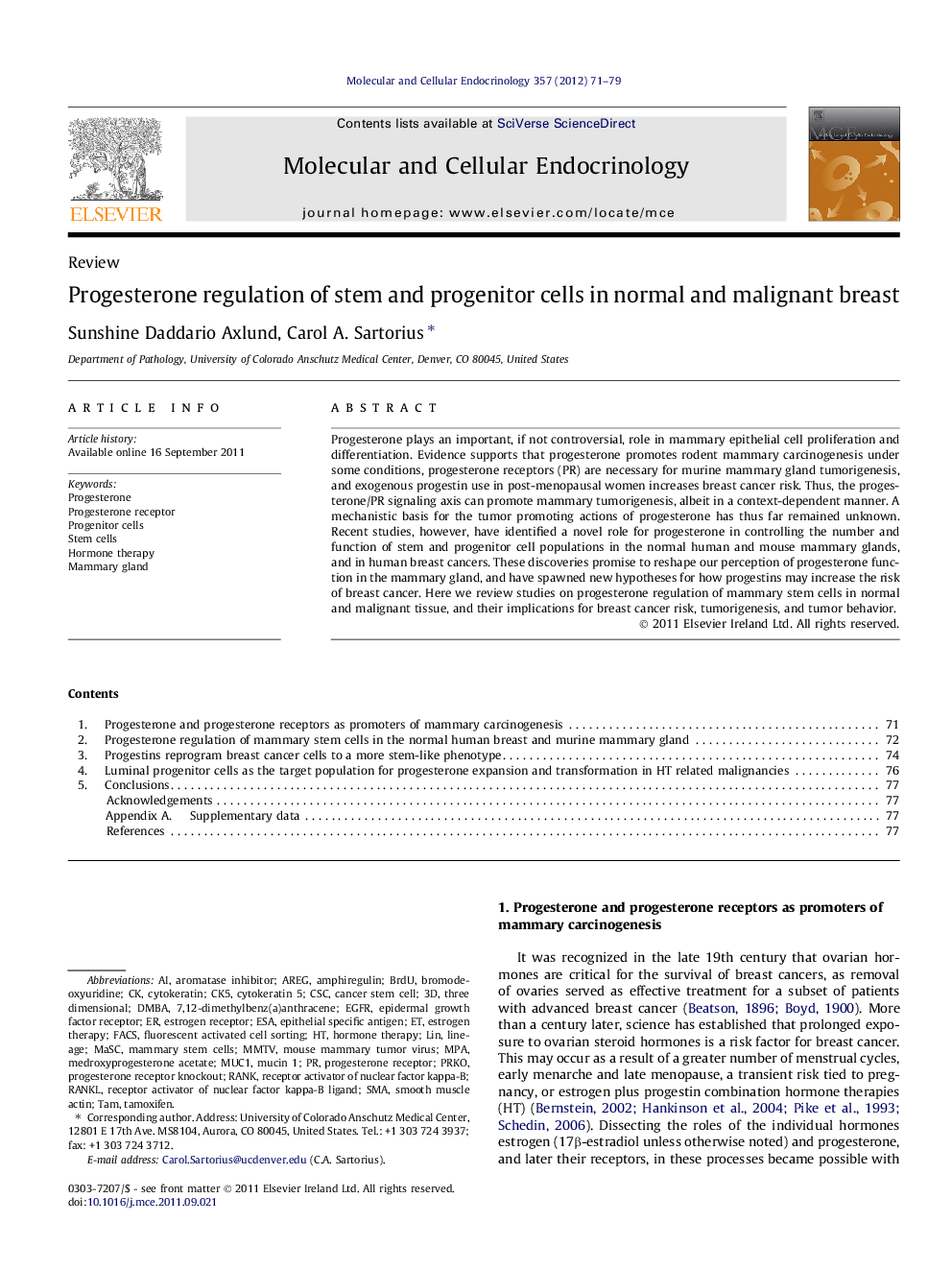| Article ID | Journal | Published Year | Pages | File Type |
|---|---|---|---|---|
| 2196328 | Molecular and Cellular Endocrinology | 2012 | 9 Pages |
Progesterone plays an important, if not controversial, role in mammary epithelial cell proliferation and differentiation. Evidence supports that progesterone promotes rodent mammary carcinogenesis under some conditions, progesterone receptors (PR) are necessary for murine mammary gland tumorigenesis, and exogenous progestin use in post-menopausal women increases breast cancer risk. Thus, the progesterone/PR signaling axis can promote mammary tumorigenesis, albeit in a context-dependent manner. A mechanistic basis for the tumor promoting actions of progesterone has thus far remained unknown. Recent studies, however, have identified a novel role for progesterone in controlling the number and function of stem and progenitor cell populations in the normal human and mouse mammary glands, and in human breast cancers. These discoveries promise to reshape our perception of progesterone function in the mammary gland, and have spawned new hypotheses for how progestins may increase the risk of breast cancer. Here we review studies on progesterone regulation of mammary stem cells in normal and malignant tissue, and their implications for breast cancer risk, tumorigenesis, and tumor behavior.
► The female hormone progesterone expands stem cells in the murine mammary gland. ► Progesterone increases progenitor cells in normal human breast organoids. ► Progesterone reprograms breast cancer cells to a more stem/progenitor like state. ► Progestins in hormone therapies may reactivate stem cells in postmenopausal women.
